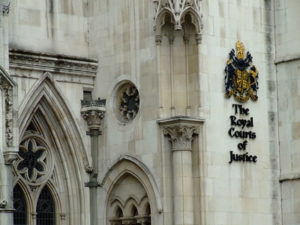When life really does means……. LIFE

When a life sentence is imposed, a tariff is attached to it. This tariff is the minimum amount of time that a person must spend in custody before being considered for parole and release.
In certain circumstances, a “whole life tariff (order)” can be imposed, which means that the person will never be released.
Whole life terms are relatively rare, with around only 100 being imposed since they were introduced in 1983.
Prisoners serving whole life terms include Rose West and Jeremy Bamber, (do you remember the ITV programme) both convicted of murder rather than sexual offences.
The cases of two separate sex offenders were recently referred to the Court of Appeal on the basis that they were thought to be overly lenient. McCann and Sinaga (recently on the bbc news) had been given a life sentence with minimum terms of thirty years. A further case, Shah, was also considered.
McCann was convicted of abducting seven females aged between 13 and 71; he also held a mother and her two children captive in their home. Seven of the victims, including two children, who were seriously sexually assaulted during the course of violent attacks.
Sinaga was convicted of 136 offences of rape in respect of 44 victims. The scale of the offending, and the nature of the evidence, meant that the prosecution had to be split into four trials. Sinaga targeted males who were drunk in the early hours of the morning. He would escort them back to his flat using several different reasons and give them a date rape drug before raping or sexually assaulting them. He filmed and photographed the assaults with the footage showing the victims were unconscious.
In sentencing Sinaga, the judge commented that she was not aware of any whole life term being imposed for an offence other than murder.
Shah was a GP found to have carried out unnecessary breast, vaginal and rectal examinations of 24 female patients, two of whom were aged under 18 and two under 16. He was convicted of 90 sexual offences including assault by penetration and sexual assault and sentenced to imprisonment for life with a minimum term of 15 years.
In considering whether the sentences were overly lenient, the Court of Appeal provided guidance on when whole life terms should be imposed:
- A whole life order is the most severe sentence available, except in limited circumstances such as compassionate release; it removes any prospect of being released.
- A whole life order should only be attached to a discretionary life sentence in “wholly exceptional circumstances”.
The sexual offending in all three cases meant that a life sentence was justified because the offences were so serious.
There is a bottomless variety of circumstances which give rise to serious offending, which makes it impossible to identify what may attract a whole life tariff.
Examples are;
- A murder planned to the point of execution but curbed or prevented by an intervening event.
- Or a bomb being placed on a commercial airline that failed to detonate.
These cases were referred to as being very serious, but the Court decided they did not call for a whole life tariff. This was to make sure that the most severe sentence in their authority was reserved, except for the most serious cases involving loss of life or when a plan to murder of similar seriousness was interrupted close to completion.
The minimum terms for both Sinaga and McCann were thought to be too low, and were replaced with terms of 40 years. The minimum tariff for Shah was left at 15 years.